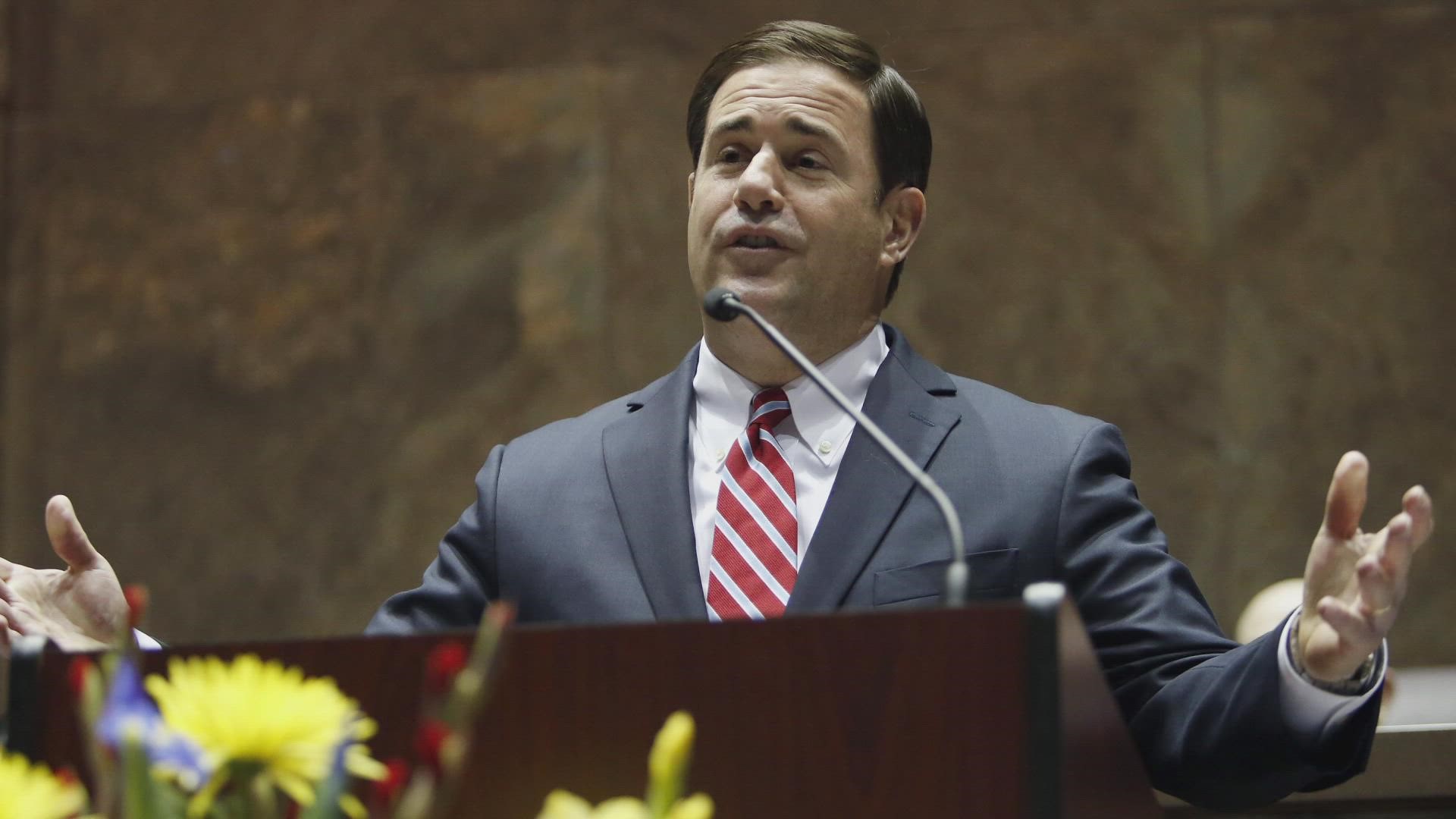PHOENIX — Arizona Democratic lawmakers are urging Governor Doug Ducey to call a special legislative session before the end of the year. They say by doing so, Ducey would be fulfilling his end of a bargain he made this summer with Democrats when the state legislature passed the bipartisan budget.
“There absolutely was an agreement that the governor would call a special session for the AEL,” said Representative Reginald Bolding (D), Arizona House Minority Leader. “Subsequently what we’re hearing from the governor’s office now is, ‘only if the votes are there,’ but that was never a pre-condition of the special session being called.”
A spokesperson for Governor Ducey told 12News last week there are not enough legislators who want to go into special session to lift the spending cap. Ducey declined an interview with 12News.
“We are continuing to work with legislators on this issue,” said C.J. Karamargin, Director of Communications for Governor Ducey.
A deal made on June 22
Bolding and Senate Minority Leader Rebecca Rios (D) tell 12News the agreement was reached on the night of June 22, as a bipartisan group of legislators negotiated final details of a budget deal. Ducey told legislators through a liaison he would call a special session after the election to lift the Aggregate Expenditure Limit (AEL), Bolding said. The bipartisan agreement included an updated formula for per-pupil spending that amounted to $800 million in permanent new spending for schools.
“This is the budget that he (Ducey) went around the state talking about it being ‘historic.’ And we believe it was historic with significant investments in education,” Bolding said. “But now schools can’t spend the money that we just approved. This wouldn’t be the way to end a legacy of a governor who seems to want to be strong on education.”
Lawmakers including Senator Christine Marsh (D), a school teacher in Paradise Valley, said the governor’s commitment to hold a special session for the AEL was a significant reason she voted for the budget.
Legislative leaders already received AEL overspending estimate Nov 1
Key leaders involved in the budget agreement were House Speaker Rusty Bowers (R), House Majority Leader Ben Toma (R), and Senate President Karen Fann (R). Last Wednesday, 12News sent requests for comment to the three leaders. 12 News has not received a response from any of them.
Toma told 12 News in July in writing that “near the end of the year” the Arizona Department of Education would need to inform lawmakers how much schools were estimated to exceed the spending cap.
“Until then, it remains unclear how much the legislature should vote to allow them to exceed,” Toma said.
That notification arrived on November 1st, said ADE public information officer Jimmy Arwood. The ADE informed legislators in a letter school districts are on pace to exceed the AEL by $1.39 billion.
“The time to solve this issue is now. It is time for state leaders to stop playing politics with school budgets, and instead give certainty to educators and families by calling a special session to lift the cap immediately,” said State Superintendent Kathy Hoffman.
Republicans acknowledge the AEL is outdated
The spending cap, approved by voters in 1980, is widely considered a financial nuisance given today’s funding needs of schools.
Absent a permanent fix, removing the cap in any given year requires a 2/3 vote in both chambers.
Based on the makeup of the current legislature, at least 11 House Republicans and 6 Senate Republicans would need to join all Democrats with “yes” votes to lift the spending cap.
Republican Senate President Karen Fann said in March she wanted to see the AEL “fixed.” She said new technology, for example, has made education more expensive.
“And I pray to God we can do it for our kids’ sake and our parents’ sake,” Fann told Senators at the time.
Karamargin declined to discuss specifically what steps Ducey has taken to determine how many legislators are willing to participate in a special session.
School districts need financial certainty to retain teachers
Charter schools are immune to the spending cap.
If the AEL is not resolved, public school districts will have to cut 17% of their budgets during the fourth quarter of the year, said Superintendent Greg Wyman of J.O. Combs Unified in San Tan Valley.
“You have some districts that have chosen not to move forward with spending this money and others have chosen to move forward with spending this money. And it just creates uncertainty,” Wyman said.
Wyman says the uncertainty causes higher turnover of staff during the second half of the school year.
“Last year when we went through this, we had any number of people get nervous and just take jobs elsewhere… School districts in general just can’t afford to go through that level of uncertainty again,” Wyman said.
>> Download the 12News app for the latest local breaking news straight to your phone.
12News on YouTube
Catch up on the latest news and stories on the 12News YouTube channel. Subscribe today.

